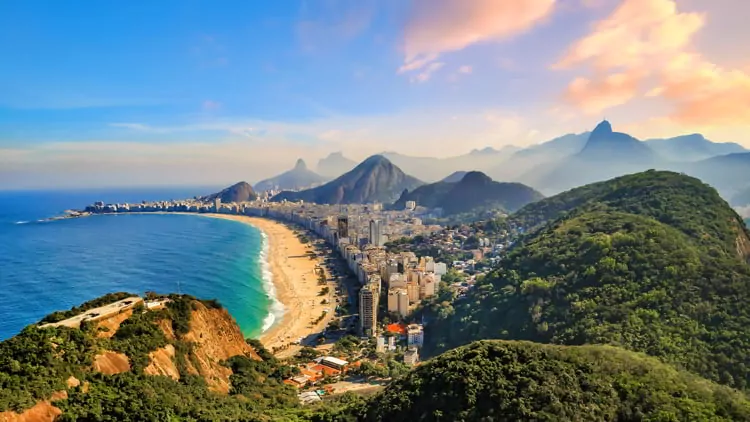Why You Need Currency Diversification Now More Than Ever
I’ve highlighted insider access to capital appreciation and high-yield rental income opportunities as two of the potential benefits of attending the 2023 Global Property Summit.
As a reminder, GPS is our biggest property-focused event of the year. It’s part education (including critical insights and intel from property investment experts) and part deal-making.
Attendees get first access to the fully vetted and exclusive property deals that Lief Simon and his team of international property scouts do the legwork to identify and bring to the table.
This year’s event features more than 24 unique opportunities…
I wish that I could share some of the specifics with you, but that information is exclusive to GPS attendees. To gain access to it, you need to be in the room at the event, taking place June 14–16.
Aside from exposure to investment opportunities that can bring capital appreciation and high-yield rental income, there’s another strategic benefit of attending GPS that demands your attention right now: currency diversification.
Currency diversification means spreading your wealth across multiple currencies to protect it in case any particular currency crashes.
People from Argentina have long understood the importance of this. During Argentina’s 2001-2002 financial crisis, Argentines with savings in banks woke up one morning to find that their account values had been decimated.
The government removed the peg between the peso and the U.S. dollar and converted all bank accounts from dollars to pesos overnight.
Argentines who came out financially unscathed were those who had been accumulating physical U.S. dollars and keeping as much of their wealth outside the country as possible.
Stockpiling greenbacks in safety deposit boxes is a strategy that many Argentines employ to this day. After Russia, Argentina is home to the second-most U.S. dollar bills outside the United States.
It’s possible that in a few weeks’ time, we won’t have to look as far as Argentina for an example of the importance of currency diversification…
The U.S. Congress and President are in urgent negotiations to raise the U.S. debt ceiling limit.
The debt ceiling has been raised 78 times since 1960, but in today’s polarized political climate, it’s proving difficult for the two sides to reach a deal.
Economists warn of dire consequences if Congress and the White House can’t settle the debt ceiling issue before defaulting… namely, chaos for the U.S. and global economies, as well as a sharp depreciation of the U.S. dollar.
The debt ceiling discussions are a ticking time bomb… There’s no time to delay getting your diversification plan started.
Diversification comes in many forms, from pursuing multiple residencies and citizenships, opening bank accounts in various jurisdictions, investing in varied asset classes, and holding businesses offshore, to name a few.
It’s complicated stuff, and it can be confusing to know where to start. For more in-depth coverage of these topics, subscribe to Lief’s offshore diversification-focused publication, Simon Letter.
You don’t need to have an in-depth understanding of economics and geopolitics, though, to understand why diversification is important, especially right now…
It’s about making sure that you’re not at the mercy of any single market, economy, political landscape, government, or currency.
In this article, I’m homing in on the importance of currency specifically.
Everyone agrees that you shouldn’t put all your eggs in one basket, and the same rule applies to currencies. Diversification into various currency baskets is a way of protecting the value of your assets from problems in one financial jurisdiction.
One of the smartest and fastest ways to achieve currency diversification is to invest in property overseas. This could also create opportunities for diversification in terms of market, type of investment, and type of property… all welcome by-products on top of currency diversification.
The opportunities that will be presented at this year’s Global Property Summit are denominated in a variety of currencies. Again, I can’t tell you what’s on the roster this year, but I can talk about some of the recommendations highlighted at 2022’s GPS. These delivered both currency and real estate diversification.
Attendees got access to a turn-key development opportunity in Fortaleza, Brazil, which provided access to another asset type, another economy, and another currency in South America’s financial leader.
Another opportunity focused on Colombia’s middle-class rental market. Attendees could invest in a master-planned community development in Cartagena to gain a financial foothold and cash flow in a popular area of this rapidly growing economy.
For those with their sights set on Europe, real estate and agricultural investment deals that provided euro-based assets with the potential for capital appreciation and cash flow were presented. A long-term play in an innovative farming project in Spain, for example, is expected to provide strong cash flow in euros over the course of 45 years.
This year’s event will have a similar mix of real estate offerings… It will tell you where, with whom, and how to diversify your investments into exciting overseas properties.
If you have been considering diversifying overseas and want instant access to the roadmap, rulebook, and vetted menu of opportunities, register for the conference today.
A Few More Currency Considerations…
1. What Diversification Is Not
Owning different kinds of properties in different cities and states across the United States isn’t diversification if it’s all invested in the United States.
However, neither is moving all your real estate investment capital out of the United States and placing it in any other single market—Panama, for example, or Colombia, or Brazil.
Lief tells a story about a past GPS attendee who boasted that he’d diversified his real estate portfolio overseas. He’d sold off all his U.S. real estate, which had been a sizable portfolio, and bought a bunch of properties in Nicaragua.
He hadn’t diversified. Instead, he’d simply moved all of his real estate risk from one country to another. Now his personal wealth is completely exposed to whatever might come to pass in Nicaragua.
A global property diversification strategy may include investments in the United States, but it must also include investments in at least two (and preferably at least three) other countries, ideally each with its own currency.
2. Not All Foreign Property Markets Bring Currency Diversification
Some countries’ economies use the U.S. dollar (Panama and Ecuador, for example). Other countries (like Belize) have their currencies pegged to the U.S. dollar.
In other countries, though they have their own currency, real estate is traded in U.S. dollars (Nicaragua and parts of Mexico), meaning that your currency hedge isn’t as clean as it could be.
3. Exchange Rate Impact
Exchange rates will affect your purchase price, ongoing expenses, and profits upon exit if you’re investing in a country where the U.S. dollar is not the local currency.
Using the Mexican peso as an example, it has been trading between 19 and 21 pesos per US$1 in recent years. Even within this narrow band, the exchange rate impact can be significant. For a property valued at 7 million pesos, that 2-peso spread can cost or save you more than US$35,000.
Exchange rates can work in your favor, especially when the U.S. dollar is strong. The dollar hit a two-decade high against the euro in September 2022, and although it has weakened since then, it’s still at high levels relative to long-term trends.
It also remains strong against other currencies, like the Colombian peso and the Brazilian real, enhancing your buying power in those places.
4. Don’t Try To Time It
Just like we don’t recommend buying property solely for capital appreciation, we don’t recommend trying to time property purchases with exchange rate fluctuations.
It’s impossible to predict that you’re going to make money on a currency transaction in advance. Pay attention to property values rather than currency movements when shopping for real estate overseas.
5. Earn Income In Markets Where You Like To Spend Time
You should invest in countries where you like to spend time, working towards an investment portfolio that doubles as a lifestyle strategy.
Earning income in the local currency brings currency diversification, but it’s also just practical, providing a pool of local funds that you can dip into when you spend time in that place or if you have local bills to pay.
This eliminates the issue of having to move money across currencies and being affected by inopportune fluctuations in the exchange rate.
Sincerely,
Sophia Titley
Editor, Overseas Property Alert


